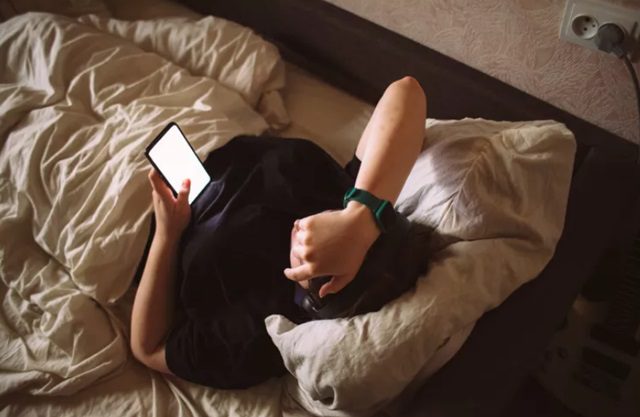BTN News: Occurring at the height of smartphone ubiquity, the question of how exactly this was affecting sleep quality once again weighed heavy on many a mind. Indeed, several studies were published highlighting a key factor: blue light emitted by smartphones prevents the production of melatonin, a hormone necessary to regulate sleep cycles.
A study with 68 men examines how blue-light exposure to different reading conditions before bed affects sleep quality. The results showed that blue light was more disruptive of melatonin compared with the non-blue light and melatonin suppression started even after the use of a smartphone without a blue light filter. This suppression hinders the natural progression of preparing the body to sleep, which can be more detrimental to old people, as melatonin suffers an age-related decline.
The effect of light, especially blue light, on the biological clock is a well-recognized example The reason we feel so energized in the morning is because of the morning light, while the blue light (like that emitted by smartphones) messes with our internal clocks and delays when we can go to bed.
Nevertheless, the study suggests some “real world applications” that could offset these effects. In particular, keeping the phone away 1 hour before bedtime will preserve the production of melatonin, which promotes a better night of sleep. The guidelines follow what most people know about sleep hygiene that it’s good for sleep quality not to be staring into LED displays late into the night.
Forum participants found it interesting that although many people regard melatonin supplements as a treatment for insomnia, this should not be the case, especially when considering young children. For those who are utilizing melatonin, the American Academy of Pediatrics advocates low doses, warning that it could be easy to accidentally overdose on it so it should be used very carefully.
So ideally, a wake-up call if being too attached to your smartphone lifestyle is affecting your time in dreamland. Simple steps such as employing blue light filters and reducing pre-bed screen time to increase melatonin production can vastly improve sleep quality. With more and more research confirming these links, we will still need to be mindful of our smartphone habits to ensure they do not disrupt our evenings and our sleep.


